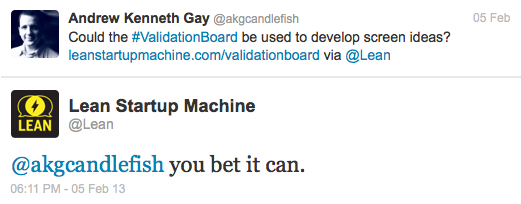As I type this, the numbers are skyrocketing. Veronica Mars creator Rob Thomas launched a $2,000,000 Kickstarter campaign hours ago, and more than 10,000 rabid fans have already sent him well past the 1/3rd mark.
We all know that Kickstarter has changed the way independent filmmakers raise production funds. What’s revolutionary here is that Thomas is raising money for a studio-owned property. Warner Brothers, which owns the rights to Mars, is reluctant to waste resources on a project that might not have the necessary consumer demand, so they’ve struck a deal with Thomas: if he validates his audience using Kickstarter (raising $2,000,000 in the process), they’ll greenlight the project and agree to distribute.
We might be looking at film history here. What could this mean for properties like Firefly and Arrested Development? This is the studio system acting like a lean startup. Are we looking at a future where low-budget studio pictures are greenlit on the basis of crowdfunded validation?
As Slate‘s Miriam Krule observes:
If this campaign is successful, then, it could help change the nature of what Kickstarter does—not just providing funding, but perhaps increasingly serving as a promotional platform. “If it works,” Alan Sepinwall argues, “this could change the game for fans of canceled shows with a similar profile, where the overall audience wasn’t big enough to keep it on the air, but passionate enough to fund some kind of follow-up project like this.” But why wait until the show is canceled? Couldn’t a TV series launch a campaign like this in order to keep a show on the air? Maybe if Kickstarter was around in 2007, we’d already know whether Veronica ended up with Logan or not.


Mar 13
Update: Veronica Mars and the Future of Lean Film Development
13 March 2013
Earlier I posted about the Veronica Mars Kickstarter campaign that show creator Rob Thomas launched this morning to fund a movie continuation of the TV heroine’s story. Well, that post’s already dreadfully outdated. Continue reading